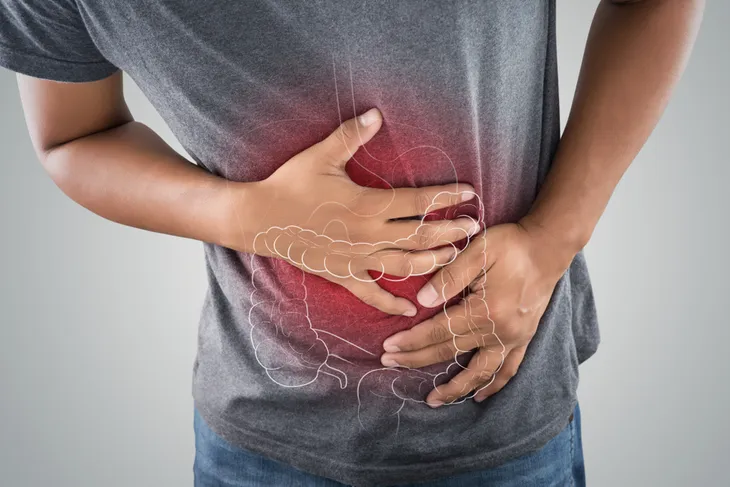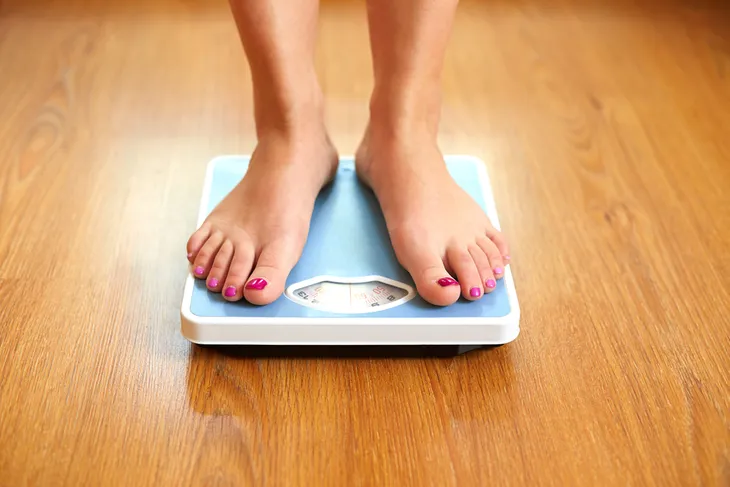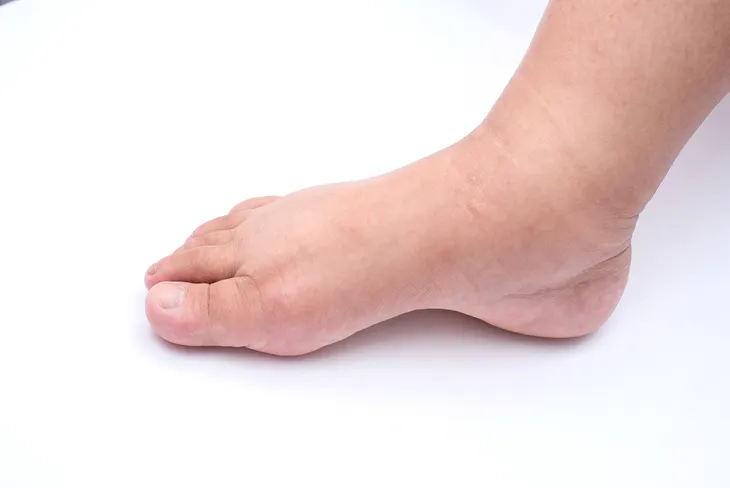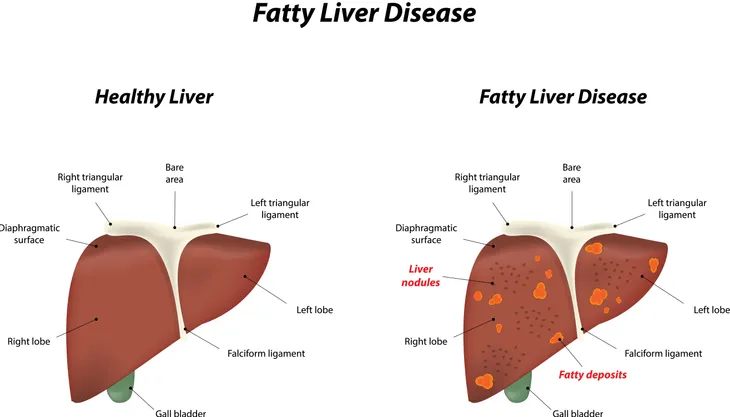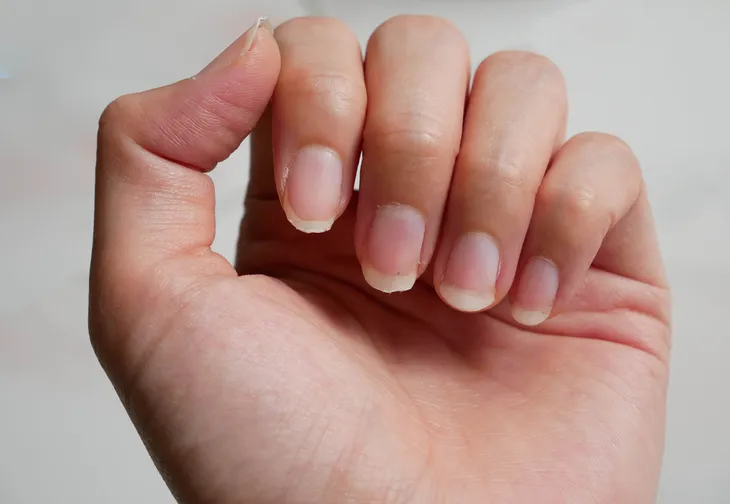Protein is considered among the most important nutrients for the body. Not only is it the building block of your muscles, but LiveStrong says it also helps “produce new cells, regulate hormones and enzymes, heal wounds and promote immune function.”
While most people consume enough protein through their food choices on a day-to-day basis, those who undereat, are vegetarian or vegan, or live in developing countries may not. The following are 13 signs of a protein deficiency to be mindful of.
Think you may have a protein deficiency? Try Optimum Nutrition Gold Standard Whey Protein Powder – an Amazon best-selling with a 4.5+ rating and over 18,500 consumer reviews! (As an Amazon Associate this site earns from qualifying purchases.)
Want diet & nutrition content delivered straight to your inbox? Sign up for our exclusive diet & nutrition newsletter!
Muscle Wasting
When the body isn’t getting enough protein from food sources, Healthline says “the body tends to take protein from skeletal muscles to preserve more important tissues and body functions.”
This condition is known as muscle wasting, which can lead to a loss of energy and strength and may make doing physical activities more challenging. The source adds that elderly people are especially susceptible, with “even moderate protein insufficiency” causing muscle degeneration.
 Orawan Pattarawimonchai / Shutterstock
Orawan Pattarawimonchai / ShutterstockBone Fractures or Breaks
In addition to your muscles, an inadequate amount of protein can also affect the health of your bones. In fact, Healthline indicates, “Not consuming enough protein may weaken your bones and increase the risk of fractures.”
This is because “Protein is needed for calcium absorption and helping with bone metabolism,” says Dr. Axe. Unfortunately, should you experience a fracture or break, a deficiency can slow recovery, as protein is essential for healing, as well as building new cells, tissue, and skin.
Poor Sleep
Having trouble sleeping? It may be a sign that you’re deficient in protein. As the nutrient is crucial for helping to keep blood sugar levels stable, not getting enough of it can result in swings that Dr. Axe says can “carry over through the night,” resulting in poor sleep and insomnia.
Additionally, DavidWolfe.com indicates that protein “acts as the building blocks of tryptophan, an amino acid that causes drowsiness.” Try eating protein-rich foods near bedtime to help stimulate its production so you can get a better night’s sleep.
Brain Fog
Your body requires a certain amount of protein in order to keep your brain functioning properly. If you find yourself experiencing brain fog, lack of motivation, poor concentration, or trouble learning new things, it may be a sign that you’re deficient in the nutrient.
Specifically, protein is essential to the production of dopamine, epinephrine, norepinephrine, and serotonin, neurotransmitters that are needed to help you focus. Dr. Axe explains that these neurotransmitters “are synthesized in the brain using amino acids,” which are created when the body digests the nutrient.
Digestion Issues
Amino acids—which are created through the digestion of protein—are essential to a variety of digestive system functions. Therefore, if you’re not consuming an adequate amount of protein, you may find yourself experiencing issues.
These issues can include stomach pain, gas, diarrhea, or sometimes constipation. DavidWolfe.com explains that such problems occur because, “Without enough protein, enzyme production and muscle contractions in your GI tract will suffer.”
Moodiness and Anxiousness
As mentioned earlier, when protein is digested in the body it creates amino acids. And amino acids are what comprise neurotransmitters like dopamine and serotonin, which control your mood.
So if you’re not getting an adequate amount of protein, the production of these neurotransmitters can suffer, resulting in mood changes and increased anxiousness. Simply increasing your intake can help to synthesize more of these hormones and help to “bring on positive feelings like calm, excitement and positivity,” says Dr. Axe.
Sugar Cravings
If you’re low on protein, you may find yourself battling constant cravings for snacks that are high in sugar. The reason for this is because protein helps to keep your blood sugar levels balanced, so if you’re not getting enough “your glucose levels will be all over the place, encouraging you to reach for a quick fix like candy,” says Women’s Health Magazine.
The problem is that carbohydrates digest quite rapidly, so after consuming these sugary snacks you’ll experience a spike in blood sugar, followed by a crash that causes you to reach for even more of them. Adding more protein to your diet will help to slow down digestion to avoid this cyclical process.
Weight Gain
As mentioned previously, sugar cravings are a common sign that you’re deficient in protein. If you give in to those cravings on a consistent basis, it can oftentimes lead to weight gain.
While high-protein food sources sometimes have more calories than carbohydrates, eating more of them can help to increase satiety, preventing overeating. Dr. Axe adds, “They also help stabilize your blood sugar, allow you to retain more muscle which burns more calories all day, and can reduce cravings.”
Edema
Insufficient protein intake can also lead to a condition called edema, also known as swelling, where the skin becomes swollen and puffy due to fluid retention. This is especially common in the body’s extremities, such as the feet and ankles.
Citing Harvard Health Publications, Reader’s Digest explains that this occurs because “proteins help to hold salt and water in blood vessels; without enough protein, these fluids can seep into surrounding tissues.” Edema is often characterized by skin that looks stretched and shiny, and “retains a fingerprint after being pressed for a moment.”
Fatty Liver
Another common sign of protein deficiency is a build up of fat in the liver cells. If left untreated, this accumulation can sometimes develop into fatty liver disease; a condition that Healthline says can cause “inflammation, liver scarring and potentially liver failure.”
Although it’s not entirely clear why fatty liver disease occurs in those who are protein deficient, the source says, “…studies suggest that an impaired synthesis of fat-transporting proteins, known as lipoproteins, may contribute to the condition.”
Hair Loss
As hair is made up of 90 percent protein (specifically a type called keratin), if you’re not getting enough of the nutrient it can cause hair to become thin or fall out. SELF explains that this happens because “your body stops using protein for non-essential things like hair growth in an effort to preserve its stores.”
So if you find that your hair has become dry, changed color or texture, or that you’re losing more of it than usual in the shower or when running your hands through it, it may be a sign that you need to up your protein intake.
Skin and Nail Problems
As protein helps with nail formation, not getting enough of it can result in changes such as “white bands or brownish spots on the nails,” says LiveStrong. You may also notice that your nails become weak, brittle, or develop ridges in them.
The source adds that a protein deficiency can also affect your skin, as “Protein enables cell regeneration, produces new cells and replaces dead ones.” So if you’re insufficient in the nutrient, your skin may become dry, flaky, cracked, and burn easily when exposed to sunlight.
Frequent Infections
Protein is essential to the functioning of the body’s immune system, as LiveStrong says it “protects your body and defends against foreign substances such as bacteria and viruses.”
When you’re not consuming an adequate amount of the nutrient, your white blood cell count decreases, weakening the immune system and making you more susceptible to illness such as influenza and the common cold. Healthline adds that these illnesses are often more severe in those who are low on protein.




